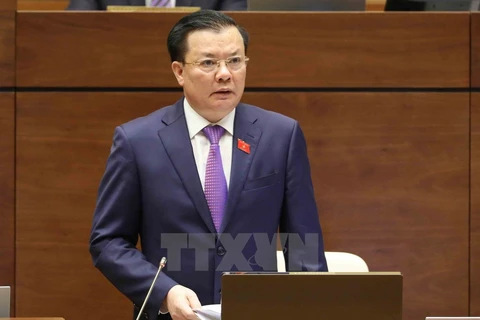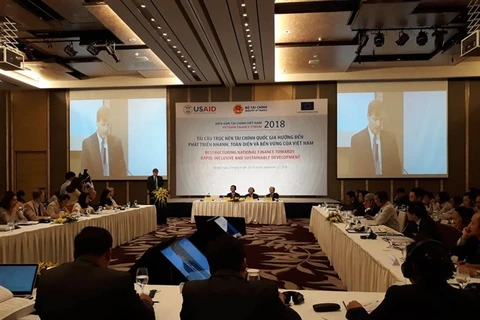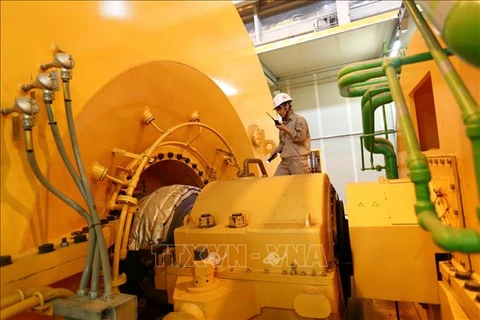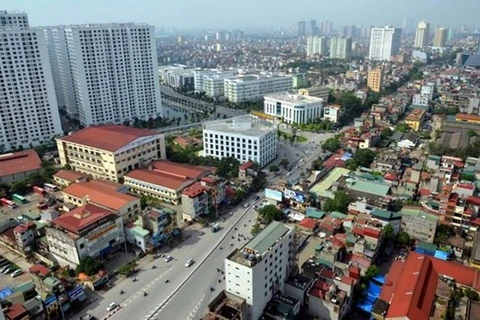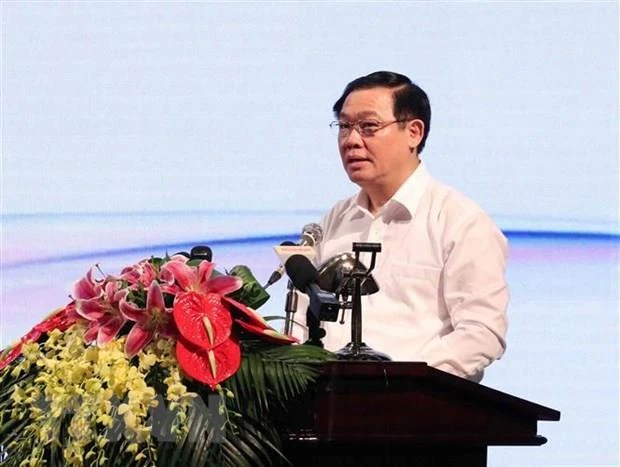
Hanoi (VNA) – The Government’s foreign debts have been declining sharply and under the Government’s control, Deputy Prime Minister Vuong Dinh Hue said while chairing a meeting with leaders of some ministries, sectors and the National Financial Supervisory Commission in Hanoi on August 9.
In 2018, the Government set a loan guarantee limit of 700 million USD but did not guarantee to borrow any international loans for projects, Hue said, adding that the Government prioritised domestic loans because they had lower interest rates.
The Ministry of Finance reported that in the 2011-2017 period, Vietnam’s foreign debts averagely increased by 16.7 percent per year.
The country’s foreign debts reduced to 46 percent of its gross domestic product (GDP) by the end of 2018 from 48.9 percent a year earlier.
Of the sum, the Government’s foreign debts, Government-guaranteed debts and debts borrowed by domestic businesses were 19.3 percent, 4.4 percent and 22.3 percent, respectively.
The ratio of debt repayment to total import and export turnover was about 25 percent, meeting international regulations and practices.
With the aforesaid outcomes, Hue affirmed that the country’s foreign debts are still below the ceiling rate of 50 percent set by the National Assembly and under the Government’s control.
He noted that up to 48.4 percent of the country’s foreign debts in 2018 came from loans of businesses and financial and credit institutions, compared to 25.6 percent in 2011 and 40.4 percent in 2016.
The rapid increase of foreign debts in the form of self-repayment was mainly seen in the foreign-invested sector which accounted for 76 percent of the total debts of enterprises, he said.
The Deputy PM asked ministries and related sectors to strengthen management of foreign debts according to legal regulations, including the law on public debt management, and resolutions of the NA and Government on public debts to ensure the capital demand of the economy in general as well as the rights and obligations of enterprises.
He assigned the Ministry of Finance and the State Bank of Vietnam to coordinate with relevant ministries to better the law on self-repayment debt management of enterprises and focus on supervising the total debts and debt structure as well as take into account risks for each business, in accordance with international practices.
The Ministry of Planning and Investment was tasked to review and evaluate the overall foreign investment, especially large-scale projects, and the impacts of foreign loan conditions on FDI growth and attraction.
According to the Ministry of Finance, in the first six months of 2019, the total corporate bond issuance exceeded 116 trillion VND (4.98 billion USD), a year-on-year rise of 7.4 percent. Of which, 36.7 trillion VND were issued by commercial banks (making up 36 percent) and real estate firms 22.12 trillion VND (19 percent). The remainders were issued by stock companies, 3.5 percent, and other businesses.
As of June, the capitalisation of the corporate bond market was equivalent to 10.22 percent of the GDP, surpassing the set target of 7 percent in 2020.-VNA
VNA
